
Graduate Research Academy 2020
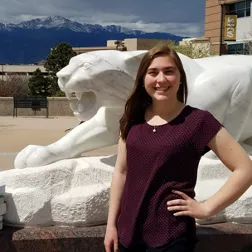
Bailee Troutman
I’m Bailee Troutman a Biochemistry MSc student in the department of Chemistry and Biochemistry. The goal of my research is to engineer bacteria that naturally contain magnetic particles to produce and antitumorigenic agent that may be used to treat some forms of cancer. I chose to stay at UCCS to complete a master’s program after completing my undergraduate degree here, because it allowed me to further my education while also developing the skills necessary to be successful in the field of biochemistry.
I was inspired to join a research lab by my research advisor Dr. Wendy Haggren, who imparted her love of research on to me during my undergraduate Biochemistry lab course. I selected my research project because it allows me to contribute to the vast field of cancer research, in an attempt to provide hope to the several family members and friends I know, and the countless other people in the world, who have been or will be affected by cancer.
My favorite experience so far has been developing relationships with the other graduate students and faculty in my department. Having a group of people who I can collaborate with and gain support from has been fundamental in my success and enjoyment of this program.
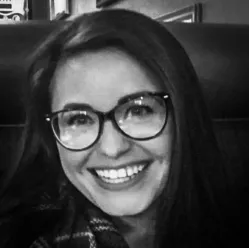
Elizabeth Peterson
Hi, my name is Elizabeth Peterson. I received my Bachelor of Science in Pure Mathematics and my Master of Science in Applied Mathematics, both from UCCS. Given my great experiences with the university thus far, it seemed a natural fit to also pursue my doctorate at UCCS.
While working on my master’s degree, I was graciously given the opportunity to teach lower division mathematics. After my first semester I reached a turning point where I became less interested in mathematical research and more interested in improving mathematics education. I soon came to realize that the uses of mathematics extend far beyond the traditional hard sciences, with wide ranging applicability to the soft sciences as well. As such, my current research focuses on developing a sound mathematical model of student satisfaction. Such research draws from the varied fields of psychology, business, education, and mathematics and includes utilization of theories regarding expectancy and emotion, conceptualization of students as educational consumers, and analysis of the underlying assumptions which factor into creating an accurate and informative regression model that effectively predicts the development of a satisfaction judgement.
Along the way, my favorite graduate school memory has been working with my professors. Being in a position to share ideas and gain new perspectives has been both inspirational and rewarding. I look forward to continued collaboration as I work my way through my doctoral program.
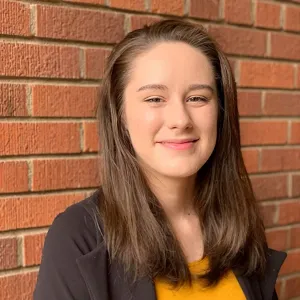
Eilex A. Rodriguez
I’m Eilex A. Rodriguez, a Master’s student in the History Program. I received my Bachelor’s at UCCS, and enjoyed the faculty and History department so much that I came back for my Master’s.
My research in Latin American history, Indigenous Ethnohistory, immigration, and working class histories began with my upbringing as a Mexican American and my passion furthered onto my undergraduate studies. My inspiration to continue my studies, especially within these sectors of history, comes from my family, my fellow workers, classmates, and my professors, including (but not limited to) Dr. Christina Jimenez, Dr. Samantha Christiansen, Dr. Yang Wei, and Dr. Bernice Forrest.
My favorite memory thus far within the Master’s program has been truly any discussion portion of my classes. My classmates blow me away with their brilliance, poignancy, and thought provoking questions, and I am always grateful to get share moments like that with people that love history as much as I do.
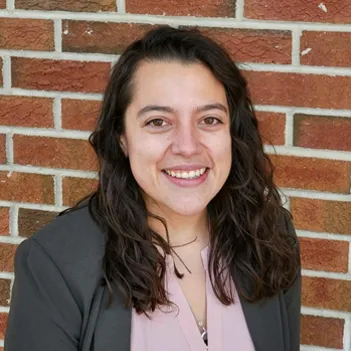
Ericka Rivera Lemon
My name is Ericka Rivera Lemon, an MSc candidate in the Chemistry and Biochemistry department. Upon starting here at UCCS, I quickly realized that the Chemistry and Biochemistry department had so much to offer and that I wanted to earn more than a Bachelor of Science degree here. I enrolled in the Accelerated Master's program (AMP) and started my graduate program. My research focuses on developing a silver nanoparticle antioxidant assay, SNaP-C, specifically for the detection and quantification of Vitamin C in various beverages. It has involved developing a novel silver nanoparticle synthesis and the method development and validation of a new antioxidant assay compared to previously established antioxidant assays.
My research interests include functionalized nanoparticles, food and environmental chemistry and analysis, development of assays or quantitation methods, and more. I was motivated to enter Dr. Janel Owens lab after completing her environmental chemistry, which introduced me to applied analytical chemistry applications. As I learned more about her various research, I knew that I wanted her as my mentor through my Master's degree.
The majority of my favorite memories I have had over my time here at UCCS have been during my research's assay method development. It has been a long process where I have faced many challenges, but I have made numerous meaningful opportunities to grow as a chemist and a person.
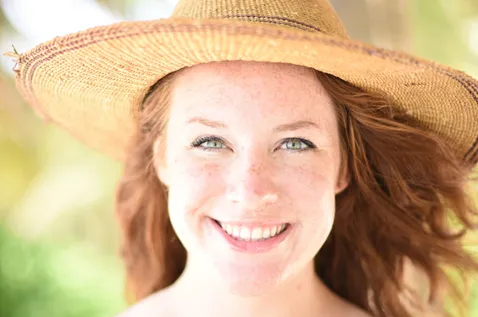
Kelly O’Donnel
I am a PhD student in the clinical psychology program at UCCS! I grew up in Michigan and completed my B.A. at the University of Michigan, and came to Colorado because I loved the opportunities UCCS offers to combine my clinical and academic interests to conduct applied research on trauma, risk and resilience, and global mental health.
I was fortunate to have the experience of an international fellowship after undergrad that stimulated my passions for psychosocial response to disasters in developing countries around the world. Understanding more about the nuances of factors like health access, stigma, and cultural competence led me to become interested in conducting research that more sensitively addressed gaps in trauma research for vulnerable populations around the world, and take resilience/strengths-based approaches.
I haven’t made too many memories so far, given COVID; but my favorite experience has been my Trauma Psychology I course with Dr. Kristi Samuelson! It’s a wonderful course that felt specialized and pertinent to my work.
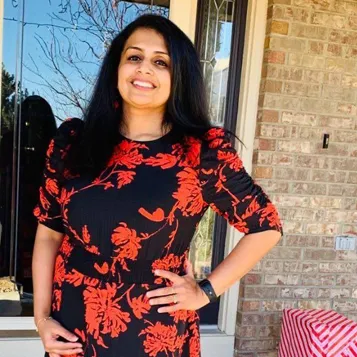
Renju Peroor
I am Renju Peroor and I am a physics PhD student in the department of Physics and Energy Science. The department of Physics at UCCS is well known for their expertise in the field of magnetism and that was my main attraction as I was seeing unlimited potential to expand my knowledge in the field of magnetism.
While attending seminars conducted by the department and after reading two publications of Dr. Dmytro Bozhko, one regarding magnon phonon interaction and another regarding recent trends in microwave magnetism, got me interested in learning more about it. I have been working with my advisor Dr. Dmytro Bozhko for the past year and I am very happy with the progress I’ve made learning about excitation of magnetic spin waves using microwave resonators. I have always learned something new with every meeting I have with my advisor, which reaffirms my decision to come join UCCS
Apart from having knowledgeable and supportive faculty at UCCS, there are plenty of opportunities to build great and long-lasting relationships with fellow graduate students and provide a great platform to exchange ideas and information. The feeling of community cultivated throughout these years has been a source of so much joy, and I will treasure this experience long after my tenure as a graduate student.
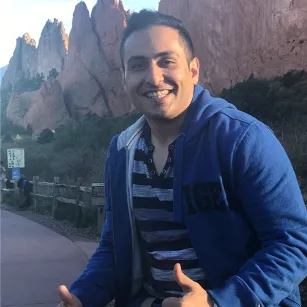
Zanyar Zohourianshahzadi
My name is Zanyar Zohourianshahzadi. I’m a Ph.D. candidate at UCCS majoring Computer Science with a focus on Artificial Intelligence. Previously, I have finished a master’s degree in Information Technology and a bachelor’s degree in Computer Science and Information Systems.
My research is mainly focused on Vision-Language systems. Vision-language systems combine the principles of computer vision and natural language processing systems. In computer vision convolutional neural networks (CNNs) are employed in order to find the important patterns in the images that lead to the correct classification of these images. On the other hand, traditionally, in natural language processing, instead of CNNs, Recurrent Neural Networks are employed in order to handle long short-term dependencies in sentences for translation or other NLP tasks.
Vision-language combines computer vision and NLP in order to handle complicated tasks such as image captioning and visual question answering that require a higher level of intelligence, that is combining visual and textual information in order to solve the problem.
Improving vision-language systems to a level that these systems become capable of handling tasks such as Zero Shot Learning and Few Shot Learning in a perfect manner is an attempt towards achieving systems equal to or resembling Artificial General Intelligence. AGI systems, in short, are capable of manifesting human level or even a higher level of intelligence. These systems could be used in a variety of different tasks, aiding the society in various ways.
Ideally in an AGI system, we want a design that includes the sensory information from all sources of information. Having that said, the problem is mapping the features extracted from the information coming from various sources. Vision-language tasks point out to the same problem in a basic manner. If we can achieve higher levels of intelligence in vision-language, we should be able to expand the same techniques for other sources of information in a conclusive manner, in order to map all the information and reveal the useful patterns that should be learned for higher level tasks that require a combination of different information from various sources in an AGI system.